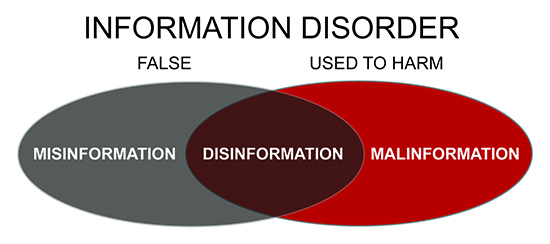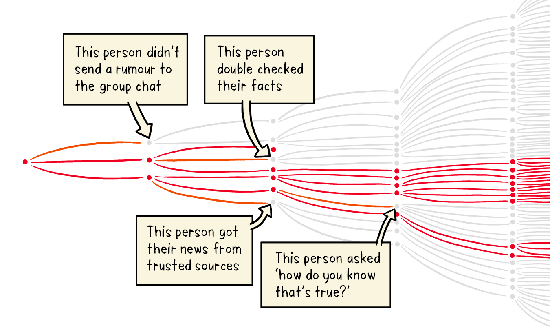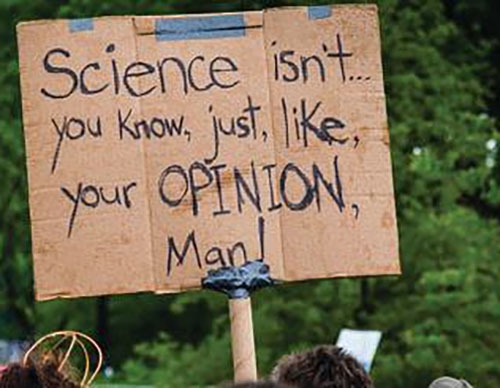show/hide words to know

Where were you the first time you heard the term “fake news”? Maybe you were scrolling Twitter, talking with a friend, or watching a cable news program. You may have been confused about what it means. Its strict definition is “news that is inaccurate.” However, sometimes that term is used to describe news that a person doesn’t like, including opinion pieces. For this reason, the term “fake news” is oftentimes meaningless. That’s why media researchers say the term "fake news" is too vague to describe today’s complicated problem of inaccurate news.
Instead, experts break it down into three specific categories known as “information disorder”:
Misinformation: False information someone shares without knowing it’s untrue
Disinformation: False information that’s shared with the intention to harm or mislead
Malinformation: True information that’s used to harm others

The three information disorder categories can then take seven different forms. You may recognize some of them, like satire, trying to frame someone, tricking the readers, and manipulating photos to support the story. The News Co/Lab put together a detailed student’s guide to information disorder(link is external), full of examples that help to explain how you may see these different types of inaccurate news in your daily life. Remember that at the end of the day, different forms of misleading content all have the same effect: convincing people of something that isn’t real. But if you can be more critical of the information you read before you pass it on, you can help reduce the spread of false information.

This image from the World Health Organization shows how the spread of incorrect scientific information can be slowed. Don't spread rumors, double-check the "facts" of what you read, use trusted sources, and think critically about information sources.
Want to play a game? Some online games can help you recognize the way online misinformation works. They can also help you recognize when you see inaccurate information online! Try one of these five games(link is external) to better understand “fake news.”
View Citation

Be Part of
Ask A Biologist
By volunteering, or simply sending us feedback on the site. Scientists, teachers, writers, illustrators, and translators are all important to the program. If you are interested in helping with the website we have a Volunteers page to get the process started.







